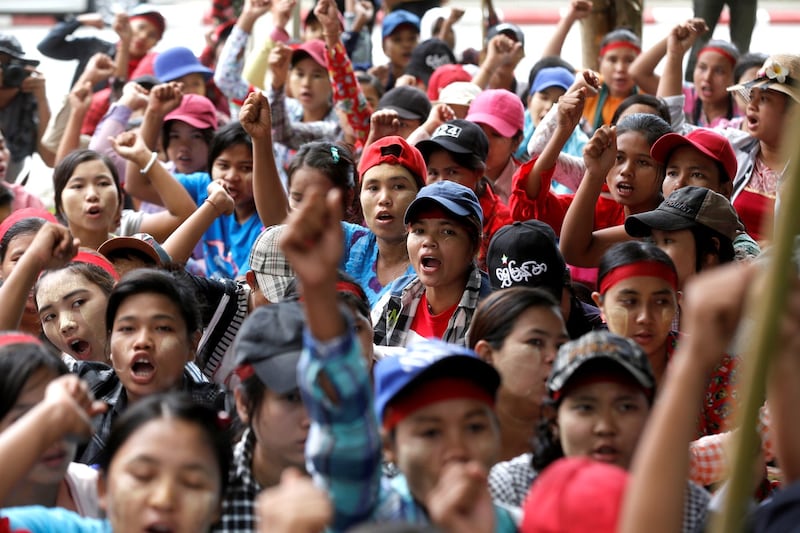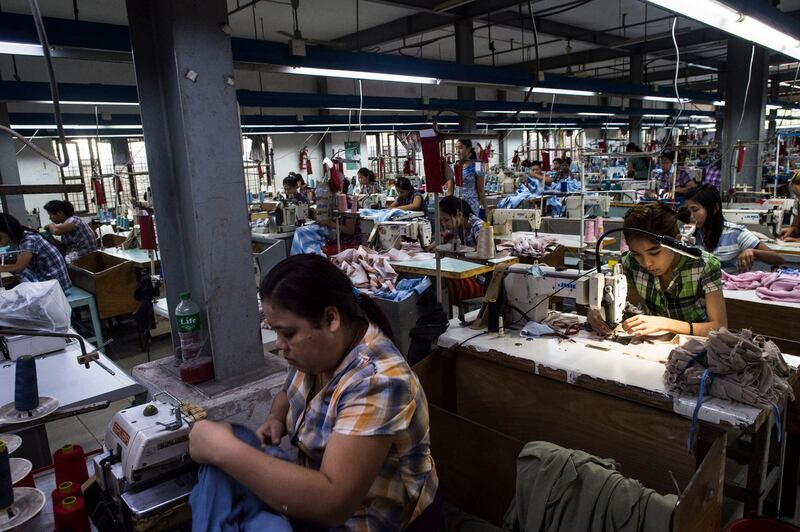The world’s second-biggest fashion retailer H&M has decided to gradually stop sourcing from Myanmar amid an upsurge in allegations of labor violations in the country’s garment factories.
The Swedish retailer told Radio Free Asia on Aug. 18 that the company has been “monitoring the latest developments in Myanmar very closely and we see increased challenges to conduct our operations according to our standards and requirements.”
“After careful consideration we have now taken the decision to gradually phase out our operations in Myanmar.”
The company declined to give an exact exit date.
H&M follows other European brands, including Tesco, Primark, Mango, Marks & Spencer, and C&A, all of which have been accused of labor and human rights violations in their supplying factories in Myanmar.
H&M also leaves on the heels of labor rights accusations, which allege the company was complicit in 20 cases of abuse.

According to a report published last week by the Business and Human Rights Resource Center, workers at supplying factories were reportedly forced to walk on their knees if they did not meet production goals, suffered from physical abuse from employers, experienced discrimination due to pregnancy, and faced wage theft.
Many factory employees also faced excessive overtime and an inability to bargain with management for higher wages, said Thurein Aung, who helped represent workers facing labor violations at some H&M supplying factories.
In response to allegations, H&M used online platforms to give workers a place to address misconduct on a factory level, but Thurein Aung says workers faced intimidation and misinformation from their bosses when trying to set up the applications.
“[We] never told them to exit from Myanmar, but if a brand does not have the ability to solve the labor rights violations in their supplying factories they should exit from Myanmar," he told RFA.
Possible large loss of jobs
Those hoping to keep business in the country responsibly, including supporters of the Multi-stakeholder Alliance for Decent Employment in Myanmar (MADE), point to the potential large loss of jobs.
“I regret H&M’s decision, as it will have a negative impact on thousands of women workers in Myanmar,” said Vicky Bowman, the director of Myanmar Centre for Responsible Business.
“But I am not surprised by it, given the recent arrests by the military of trade unionists and human rights defenders, including four members of Action Labor Rights, who have made a valuable input into the heightened human rights due diligence for both H&M and others.”
Thurein Aung also estimates 30,000 jobs could depend on H&M’s orders at their 40 supplying factories in the country.
“If the brands like H&M and Primark exit from Myanmar, they [others] will also leave from Myanmar. That's why I think not only H&M, the other brands will exit.”

One worker who’s been at an H&M supplying factory for five years says his two sisters and mother depend on his salary. While his factory, Myanmar York Garment 3, also supplies Danish brand Bestseller, he hopes the factory will try to find other investors so he and the other 2,000 employees don’t lose their jobs.
“All the workers are feeling worried about this,” he said, declining to be named for security reasons.
If he must search for work, he claims his minimum wage will not be sufficient to cover his expenses.
“These days, brands are withdrawing from our country. This is not the solution to our country’s problems. If the brands are going outside, the people are the ones facing most of the difficulties in our country.”
Other large retailers remaining in-country include Bestseller, Adidas, Lidl and Carhartt.
Edited by Taejun Kang and Mike Firn.
